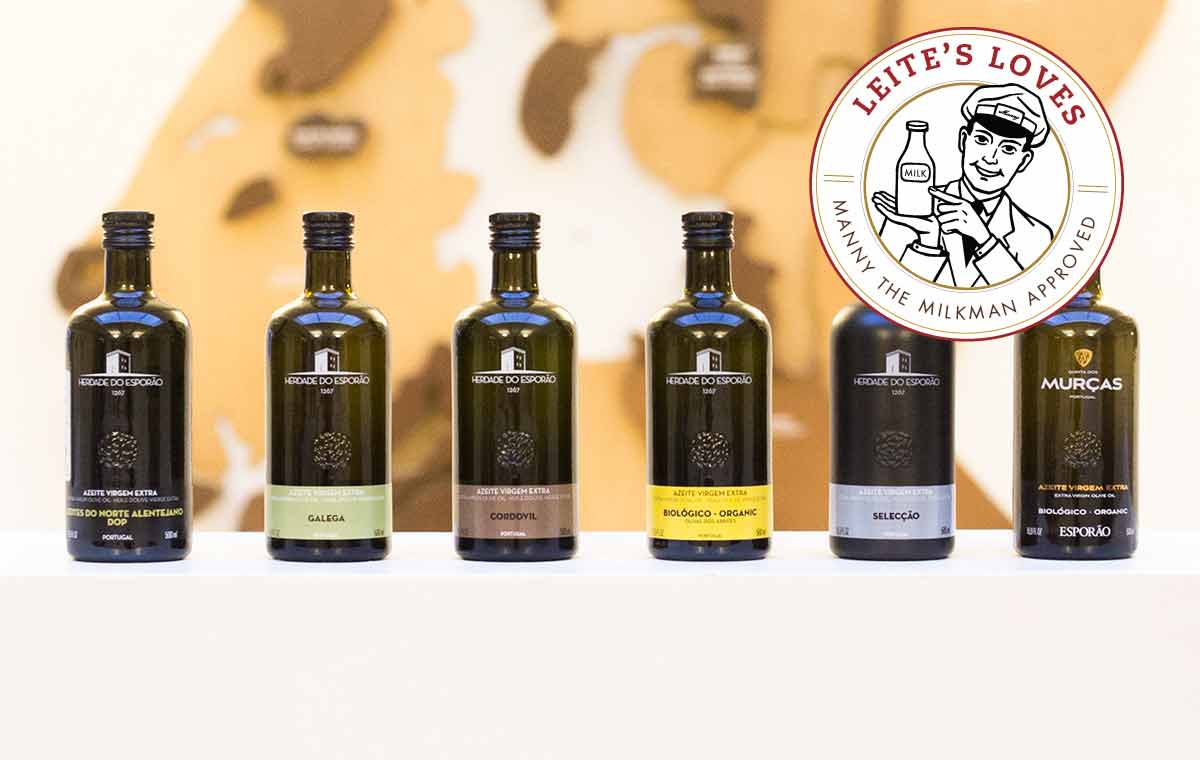
A note from David: It was April 2007. The One and I were in the middle of a trip through Portugal that began in Lisbon and sent us zigzagging across the Southern regions of the Alentejo and Algarve. From the Atlantic Ocean to the Spanish border and back. I was deep into researching and writing my cookbook, The New Portuguese Table–and by “researching,” I mean eating, drinking, and eating some more. Although The One was my Plus One, if you will, based upon the sheer volume he consumed and imbibed you’d have thought it was his book we were researching. As I wrote about him in the acknowledgments of the book, “[he may be] German/Italian by birth but [he’s] now Portuguese by dint of consumption.”

The placid region of Reguengos de Monsaraz, home to Herdade do Esporão
One of our stops was Herdade do Esporão, deep in the Alentejo in Reguengos de Monsaraz. What struck me most by the estate was the hectares upon hectares of vineyards–an enormous, gigantic version of my father’s tiny backlot “quinta”–ten rows of carefully grafted local grape varieties. We only spent a few hours there, drawn to the place by rumors of the only female chef to have won a Michelin star, Ilda Vinagre. And we weren’t disappointed.
After a marvelous lunch, followed by too many samples of desserts, The One and I left cradling bottles of their award-winning wines and olive oils.
The place–and Ilda– made such an impression upon me that, I returned several more times that year. And each time, I was well-fed and laden with more comestibles. It’s the Esporão way.–David Leite
Since being purchased by its present owners in 1973, the 754-year-old Herdade do Esporão has been dedicated to biodiversity and a balanced ecosystem. Its home in the Alentejo region of Portugal boasts not only vineyards but olive, orange, and almond groves, and vegetable gardens that only enhance the quality of its products.
Each year, the estate produces 1.5 million liters of olive oil. The oil comes from the four types of olives that are grown specifically because of their relationship to the soil, altitude, and climate of the region. All the oils are exclusively extra virgin or virgin, made using traditional methods.
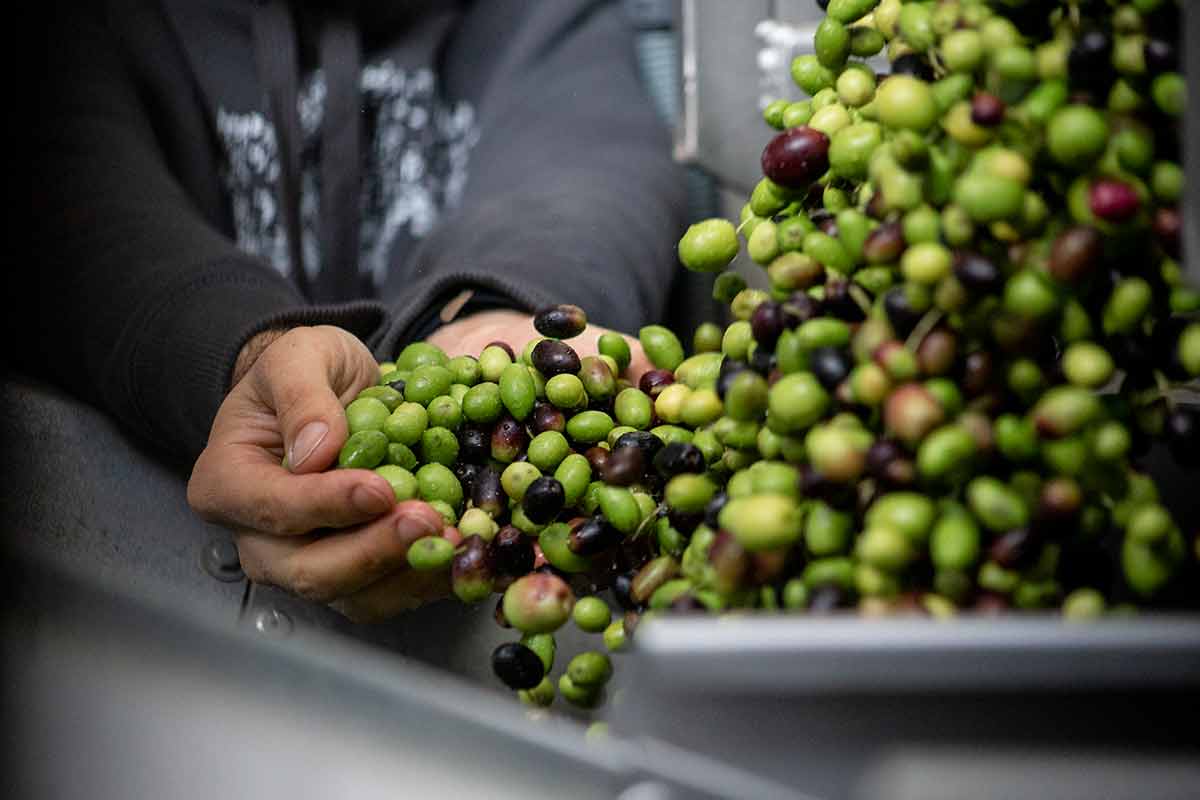
Esporão’s website gives in-depth information for each variety of olive oil, including the dates of harvest for each selection, specifics for each grove, methods of harvest, and complications encountered for the current season. It’s like a report card for olives. Each of the oils we looked at and tried are cold-extracted from olives that are processed within hours of being harvested.
While we’d be thrilled with any of their offerings, these four oils might just be our favorites.
Esporão Extra Virgin Olive Oil
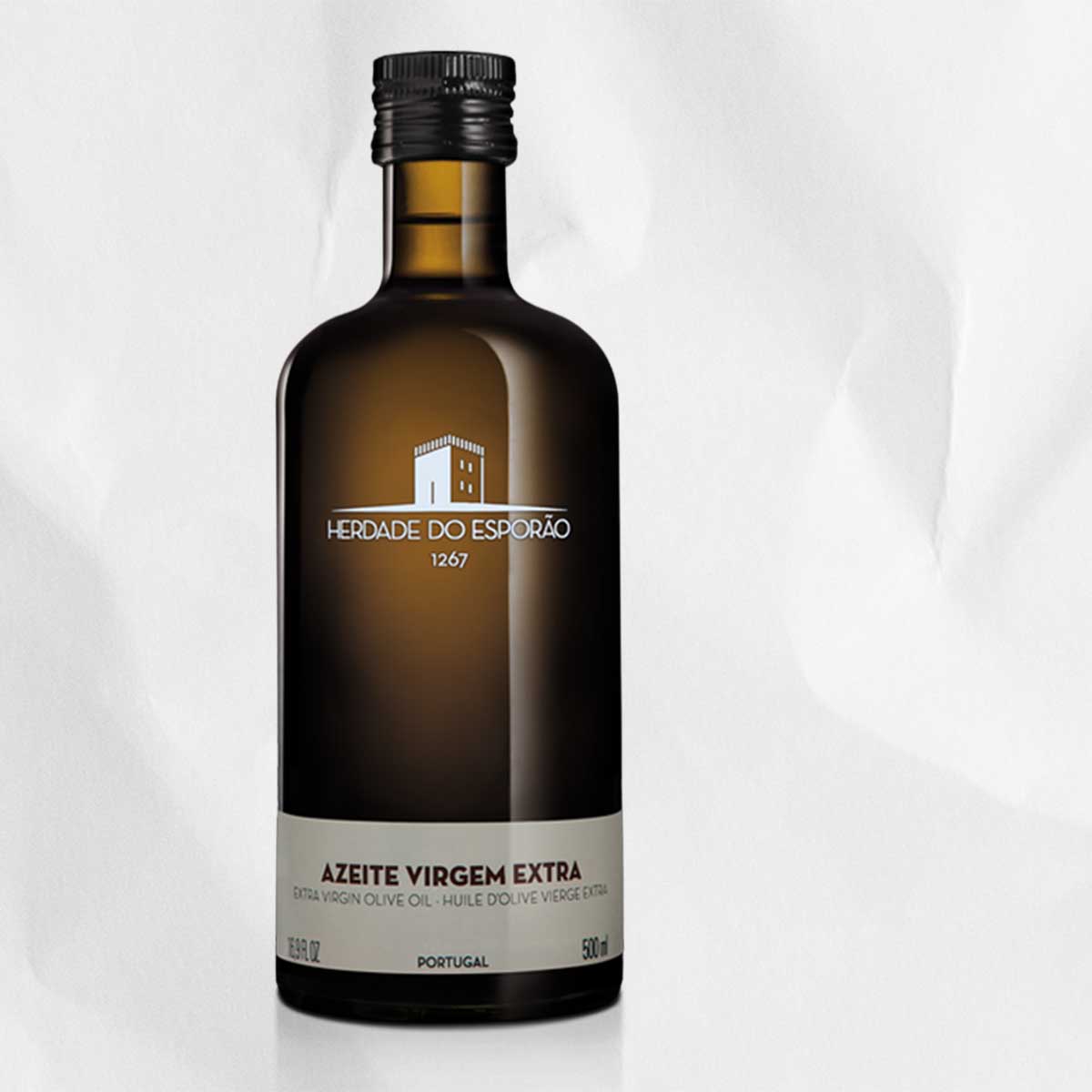
Want to Save This?
Made from a combination of Arbequina, Cobrançosa, Cordovil, Frantoio, and Galega olives, Esporão’s extra-virgin oil is the foundation every kitchen needs before exploring the others. Experimentation is great, but every cook has to get a handle on the basics first, right?
A fresh, slightly bitter, and spicy taste with a finish of dry nuts makes it easy to use in most cooking as well as finishing. It works exceptionally well in soups, stews, and oven dishes like this Portuguese-style Pork with Clams. The fruity ripeness is well balanced and is described as having a “smooth and harmonious profile.” This makes it easy to use without the challenge of worrying about overpowering your dish.
Cordovil
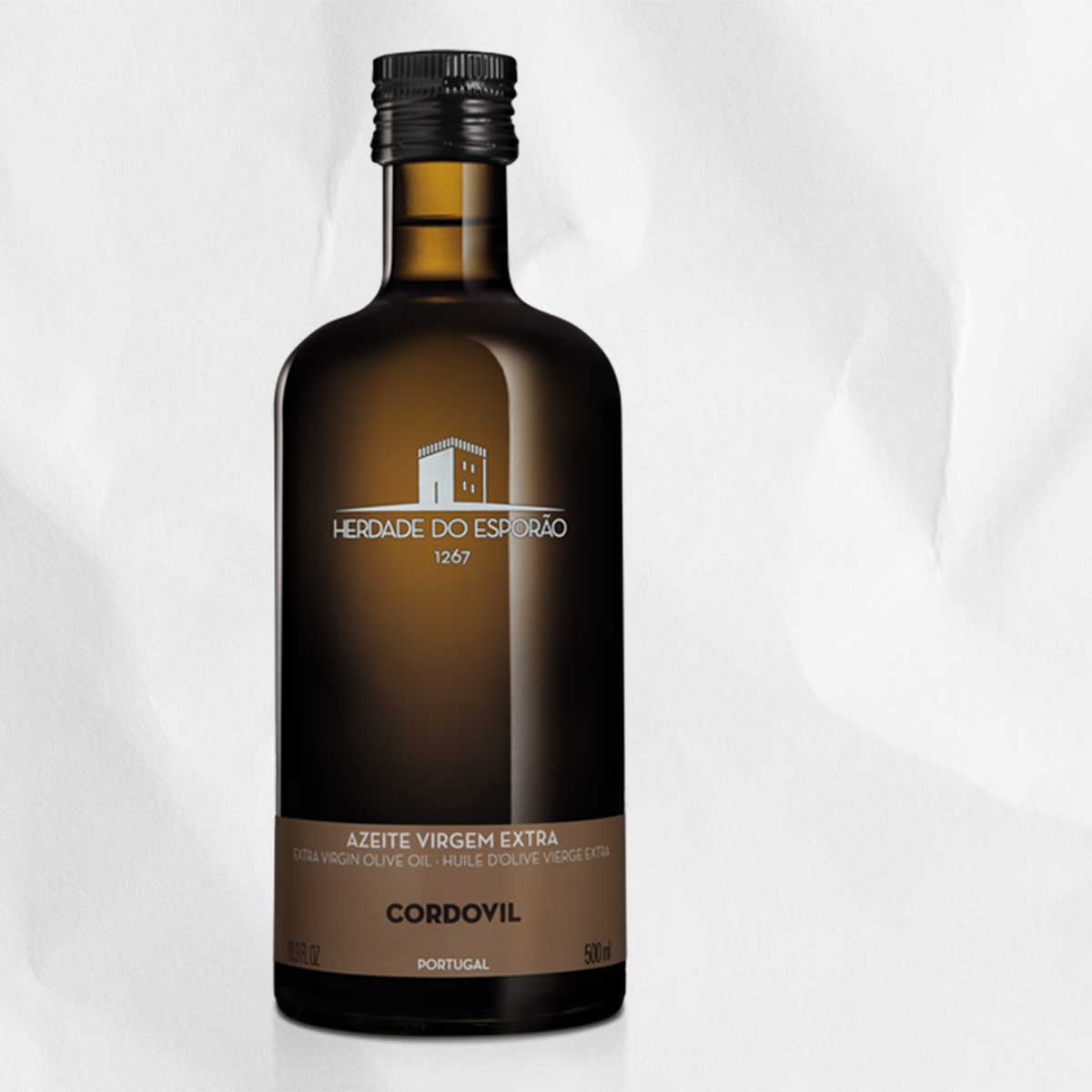
A medium fruity oil made from a single varietal of olive, this is an oil for someone looking for versatility. Its green, ripe-fruit scent, with notes of olive leaf, kale, and grass make it a great accompaniment to salads, fresh greens, simple toasted bread, or a traditional Portuguese Bread Soup with Shrimp. With a mild olive taste, it has a slightly sweet and bitter taste with fruity overtones. The Cordovil olive is considered to be truly representative of the Alentejo region, making this oil an excellent starting point for exploring your options and appreciating the oils of the region.
DOP Norte Alentejano
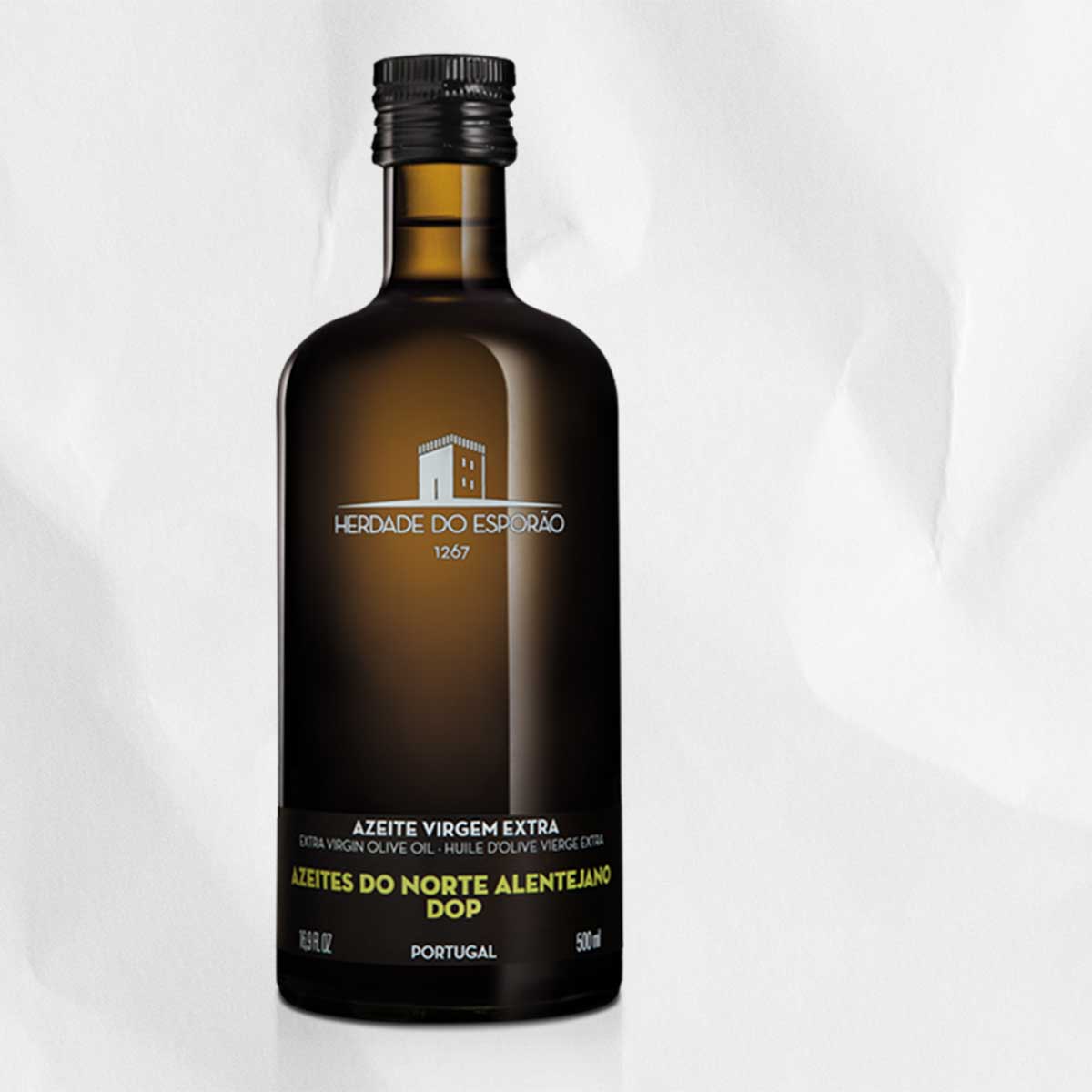
A combination of Galega, Blanqueta, Cobrançosa, Redondil, and Carrasquenha varieties, the Protected Designation of Origin DOP Norte Alentejano in Portugal is another versatile oil with a fruity, nutty taste. Yellowish-green with aromas of ripe apples, it works perfectly with a variety of dishes including salads, simply over toasted bread, hearty soups, and even the finishing drizzle over a grilled whole fish with cucumber salad. The DOP certification ensures that only oil from “Azeites do Norte Alentejano” can carry the name Norte Alentejano, meaning that there’s limited availability for this specific blend so it might be one to pick when you’re starting to consider yourself a connoisseur of the olive.
Selecção
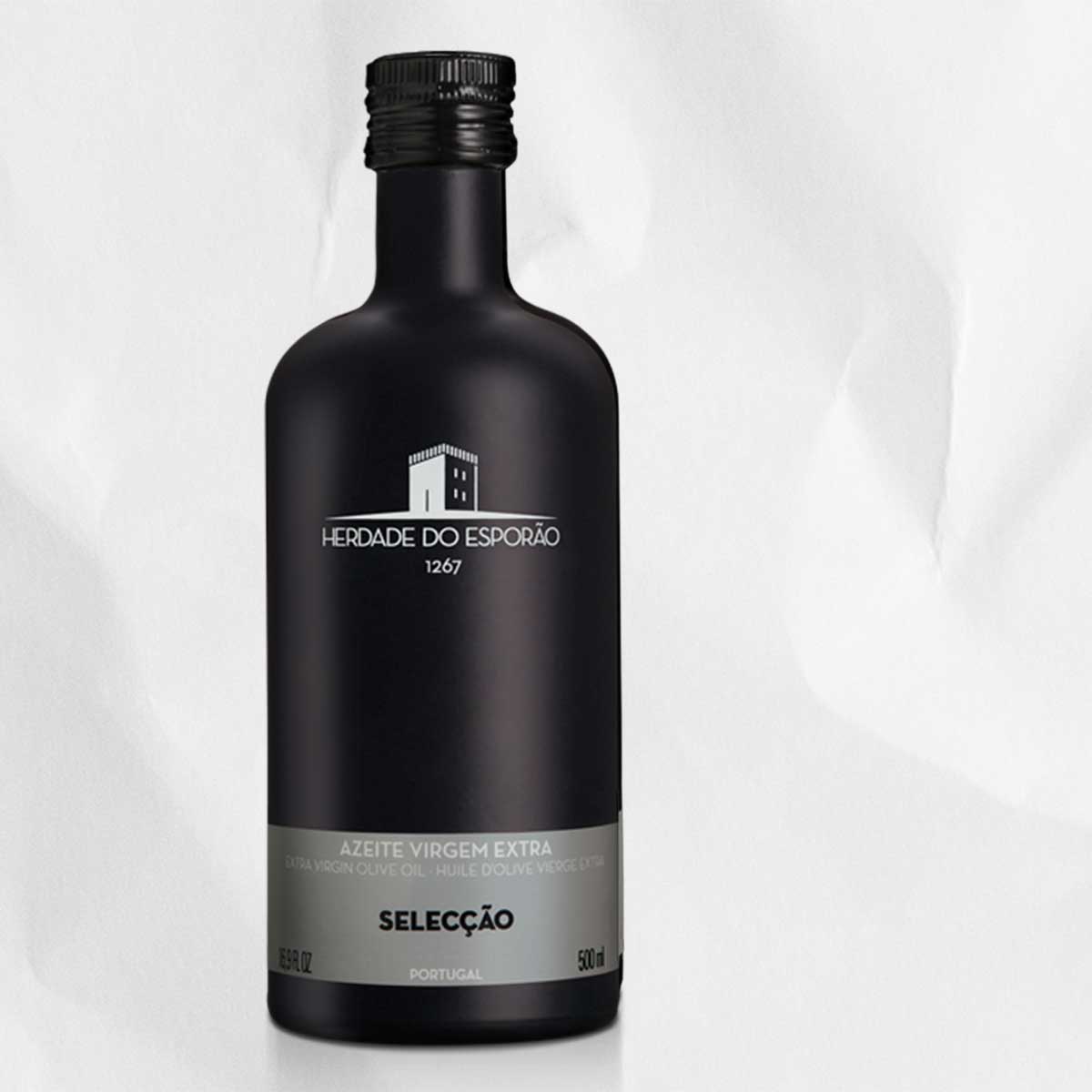
A single varietal, Esporão Selecção Olive Oil is made with Cobrançosa olives. In this particular oil, a combination of Cobrançosa olives of varying degrees of ripeness gives the product a complex and elegant finish. A pale-green oil containing notes of green herbs, freshly cut grass, green artichoke, orange blossom, basil, tomato leaf, and green tomato, it has a much more complex profile than the others on the list.
But what about taste, you say? The website states that Selecção “has a great harmony between sweet, bitter, and spicy, and astringent green almonds.” Their suggested uses include drizzling over steamed vegetables and greens, in white gazpacho, spicing up chocolate, or even smoothed on toast. Interestingly, this oil is marketed by Esporão for “more demanding consumers” so it might be the one you work up to.
If you’re lucky enough to find yourself in the region, Herdade do Esporão has a brilliant itinerary for wine tourism that includes olive-oil tastings. The experiences include hiking and biking through the vineyard, day trips, or accommodations in a five-bedroom house where you get to take part in all the vineyard’s daily activities. Sounds like a dream come true, we know. Information can be found on their website.
Where to find Esporão’s olive oil
Portugalia Marketplace, in Fall River, MA, carries the full range of Herdade do Esporão oils and 18-plus wines, as well as plenty of other maravilhoso goods from all over Portugal. In fact, Portugalia has the largest Portuguese wine collection in the country. While Esporão’s oils can be ordered online, Massachusetts law prohibits retailers from shipping wine. That just means you have to put Fall River on your travel itinerary.








